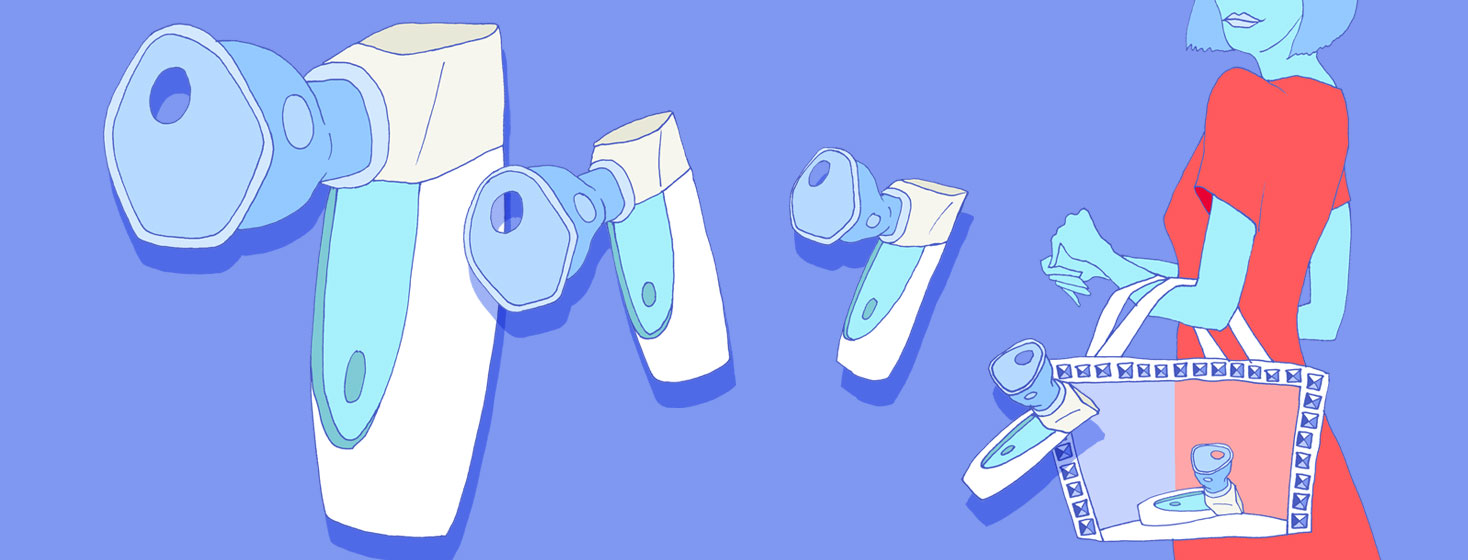Pros and Cons of Portable Nebulizers for Asthma
We have come a very long way from early nebulizers.
The first electrical nebulizer was invented in 1930. At that time, the most common medication used for asthma was a form of epinephrine, which helped reverse bronchoconstriction and eased breathing. This nebulizer turned the epinephrine into vapor via a small electrical compressor. These nebulizers were very expensive for the time, so people continued to use smaller, handheld atomizers for many years. You had to squeeze these atomizers, similar to old-fashioned perfume bottles.1
History of nebulizers: From steam to portable
I guess you could say those atomizers were the very first portable nebulizers on the market. What was once considered cutting edge is now ancient, as is to be expected. I remember my first home nebulizer in the 1980s. It was huge and bulky, not to mention LOUD, and took what seemed like forever to nebulize albuterol, which had to be measured from a dropper and mixed with saline from an aerosol bottle.
In recent years, small portable nebulizers have gained popularity, prompting more manufacturers to produce them. But there are some pros and cons of portable nebulizers for asthma. Here are some things to consider.
The pros of portable nebulizers for asthma
Convenience
The biggest pro of a portable nebulizer is that it is very convenient. They are lightweight and can easily fit in a purse. Some are so small they can fit in your pocket! This makes travel extremely easy due to their size.
Cost of medication
The liquid medication for nebulizers (such as albuterol, ipratropium bromide, levalbuterol, and budesonide) is overall significantly cheaper than the exact same medication in inhaler form.
They’re inconspicuous
My favorite feature of a portable nebulizer is that it is very quiet. Some are even completely silent! These small nebs often run on batteries, making them even more convenient. Most of the time, they have an adapter that can be purchased so you can plug them into the wall or your car.
The cons of portable nebulizers for asthma
Insurance coverage
Portable handheld nebulizers are not usually covered by insurance. They can be quite expensive to pay for out of pocket. If you have an FSA or HSA account, you can use it to pay for the service. That is how I purchased mine a few years ago.
Time
Some devices take longer to nebulize medications than a larger, traditional unit. This is due to the mechanism/motor, which isn’t as powerful as the regular tabletop nebulizers.
Medicine limitations
Most of them can also only nebulize albuterol. This means no inhaled steroids, as they can gunk up the mesh that vibrates to make the mist you inhale.
Will a portable nebulizer make a difference for you?
Portable nebulizers have their pros and cons. Each person will have to weigh both the good and bad to see if it is worth it to have one in their asthma toolbox.
For me, having a portable nebulizer that is completely silent has been an absolute game-changer. There have been times when I have not been at home and my asthma has flared very badly, so much so that I didn’t have enough strength to use my rescue inhaler. I like having my little “baby neb” (as I like to call it) in my bag for whenever I need it. It brings me a lot of comfort. I still have a regular tabletop nebulizer for home use, which is considerably smaller than my childhood one.

Join the conversation